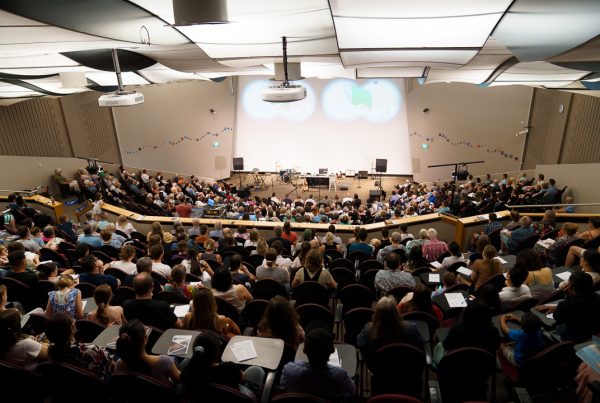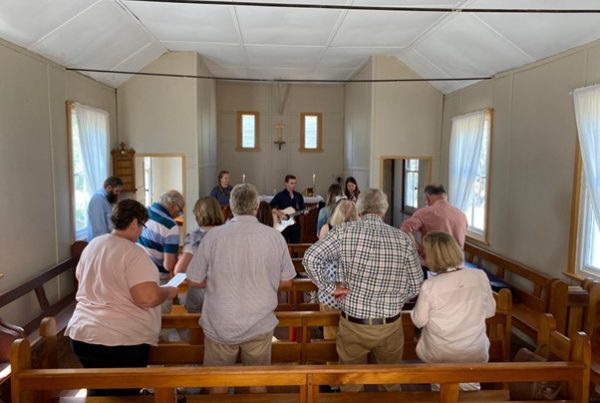22 February, 2016
Friends, when I was a kid, my parents always gave me and my sister 20c each to put in the plate at church. These were the days of wooden floors and so fidgety kids were always dropping (and deliberately rolling!) their coins down the church aisles. These were also the days when it was worth a kid’s while saving your dad’s 1c and 2c pieces up in a jar!
The rise of electronic giving in my generation has been a great help in allowing privacy and encouraging consistency in your giving to God’s church. It has allowed more and more people to pass the bag along, putting no more than their comment card in, because they have set up their bank to take care of it directly each week or month.
But electronic funds transfer has been no help at all in teaching your kids about giving, since it has removed it almost entirely from view. They’ve had no example to observe. And I imagine parents do not normally discuss their bank account settings with children. So as my twins leave home, it dawned on me that although I have preached on money in general when it comes up in a passage, I’ve not really taught them the practicalities of working it out at a personal level, beyond asking them to share a bit of pocket money.
So here’s how I think about it. Firstly, Psalm 24:1 say the earth is the Lord’s and everything in it. Anything we have comes from God. We are to use his good gifts to honour him. In terms of giving to others, the Scriptures say God’s people should do it because:
- We are partners in God’s gospel. (Philip 1:5 & 4:15)
- We have an obligation to those who labour amongst us in the Lord (1 Cor 9:7-14)
- We must show love to those in need. (Eph 4:28, 1 John 3:17)
But most basically of we give in grateful response to God’s generosity in Jesus…
For you know the grace of our Lord Jesus Christ, that though he was rich, yet for your sakes he became poor, so that you through his poverty might become rich. [2 Cor 8:9]
The New Testament never stipulates percentages. But 1 Corinthians 16:2 says it should be proportional to our income and implies you need to plan ahead for this. So Karyn and I add up all our sources of income: our pre-tax wages, the value of my allowances, the family tax benefits we receive, and the dividends from a small parcel of shares we own. We have determined to give a percentage – in our case over 10 percent – so we do the maths. Then the bulk goes to our local church. And other smaller amounts are directed to various ministries and charities we support like CMS, AFES, Anglican Aid and Anglicare.
When our close friends graduated, they were shocked to find that for them on their two starting teacher salaries, giving 10% would mean giving $100 a week. And that was back in the mid-90s! Before then, during uni, they’d been used to giving whatever loose change or occasional note was leftover in their wallet by Sunday night. Another totally new Christian at one church I served thought the government paid the minister’s salary. Not!
It strikes me then, that the time to work the principles of generous giving out as a believer is early on. The percentage is not a law, and might be different on a very low income. But most Australians – and certainly any who have the privilege of going to uni – have been abundantly blessed, and should plan to cultivate generosity in response to God’s to us!
Warmly in Christ,
Sandy Grant
Senior Minister
***Learn more about giving at St Michael’s here.





